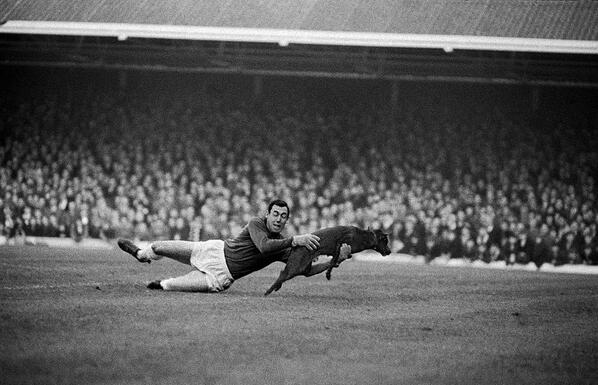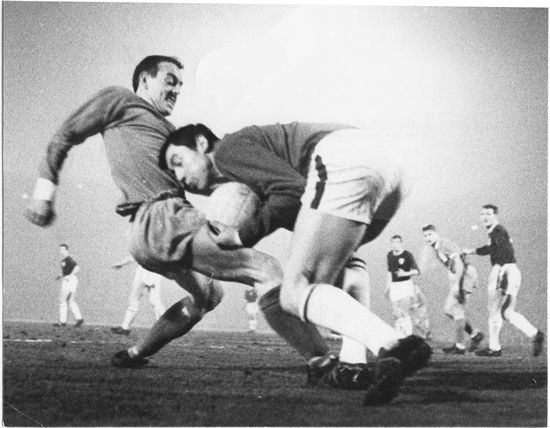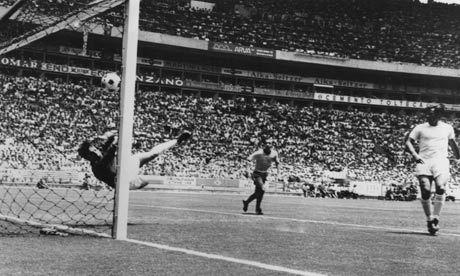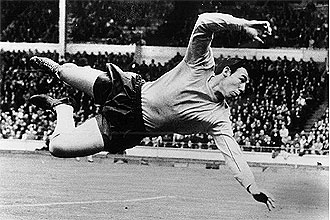Last update 26 March, 2024 por Alberto Llopis
Para muchos, Gordon Banks was one of los mejores porteros de la historia. There is a lot of talk about that semi-final of the Mundial 70 between Germany and Italy known as “the party of the century“, or the wonderful “goal of the century” Diego Maradona against England, but also in Mexico 16 years later. However, What many do not know is that there was also a “stop of the century”, the one made by our protagonist of this story.
Gordon Banks, one of the best
Born in Sheffield in 1937, Banks embodies the brightest era of British football. The one that in 1966 took them to the top of the world. Although his career began long before, and as in many other cases, casually. Nothing foreshadowed when he left school that one day he would become a professional. His were the words before starting to work as a bricklayer that “he had more ability to quickly pick up the ball from the net than to stop it”.
Even, already in full adolescence, was discovered by a talent scout from Chesterfield, who took him to the Third Division in exchange for 2 pounds per game. Allí, with military service in between, It was when his virtues were uncovered, when he showed sobriety, agility and intelligence under the sticks. A firmness that earned him to be transferred in 1959 to Leicester City for 7.000 pounds, a high amount for the time.
At Leicester he would live his best years. In a team that did not stand out-that was the great drawback of Banks throughout his career-, There were many games that Banks saved his team. So many that it led him to play in two FA Cup finals at Wembley, both lost, especially tragic the second, for the illusion put in beating United.

Campeón del mundo en 1966
Nevertheless, his two good seasons at Leicester, they took him to enter a renewed English selection. The entry of the new coach Alf Ramsey served to prepare a new team whose objective was the Mundial 66, that was played at home. Y ahí, Banks he was the great pillar in the goal. made his debut, as the occasion deserved, at Wembley, and against Scotland in April 1973. a prelude to the 73 games with which he would end up wearing the shirt of the “three lions”, with which he came to keep up on 35 times the arc to zero.
With the national team, the true dimension of Banks would be seen. En el Mundial del 66, his performance was simply colossal in the conquest of the world title. Until the semifinals against Eusebio's Portugal I wouldn't get a single bit, penalty and of course through the Pantera of Mozambique that would break an unbeaten 443 minutos. “at that level, every goal is like a knife in the ribs”, was his first reaction after conceding the goal, in the match that he himself defined as the most important of all those played with the national jersey, even from the end, the one that would win in extra time against Germany by 4-2.

It gave way to another myth like Peter Shilton
In 1967, another legend of the English goal would replace him at Leicester, Peter Shilton. The strength of a new talent led him to be sold by 50.000 pounds to Stoke City, with which he would achieve the only title of his career at club level: the League Cup 1972, too little loot for a man who, had he been on a big team, would have been considered one of the three best goalkeepers in football history.
Enshrined in Stoke and an icon in the English team, sin embargo, his moment of glory, would come with 33 years, at the World Cup in Mexico. La Brasil del 70, was the rival in the second match of the championship. Skin, Tostao, Riverinho or Jairzinho They formed an unparalleled team full of fantasy and talent that swept wherever they went. Against England it was no less, only there was a hitch: Opposite was the best goalkeeper of the moment and that is always a problem.
Opportunities were not lacking, Not even that Jairzinho cross that was masterfully finished off by Pelé towards the net until a saving hand appeared that prevented the goal.. The goal that was not, the play that gave the most headlines, even from 10 Brazilian who always manifested: “I scored a goal, but Gordon Banks stopped him”. And yes it was a goal, even Banks himself saw it inside: "I didn't imagine that I could stop that ball even when I hit it with my thumb. I thought I was in until I heard the applause from Bobby Moore.".
Gordon Banks and the stop of the century
so magnificent it was, that the Mexican press baptized the move with the grace of “Banks, as safe as english banks”. An intervention for which he will always be remembered, even more than for his brilliant career, that a traffic accident ended in 1972 losing an eye, after coming from a visit with the physiotherapist of his team.
Named by the International Federation of Football History and Statistics (IFFHS) as the second best goalkeeper in history, behind the great black spider, and holder of the British Order of Merit Medal, when Banks was under the sticks, the rival had a problem, a big problem.


